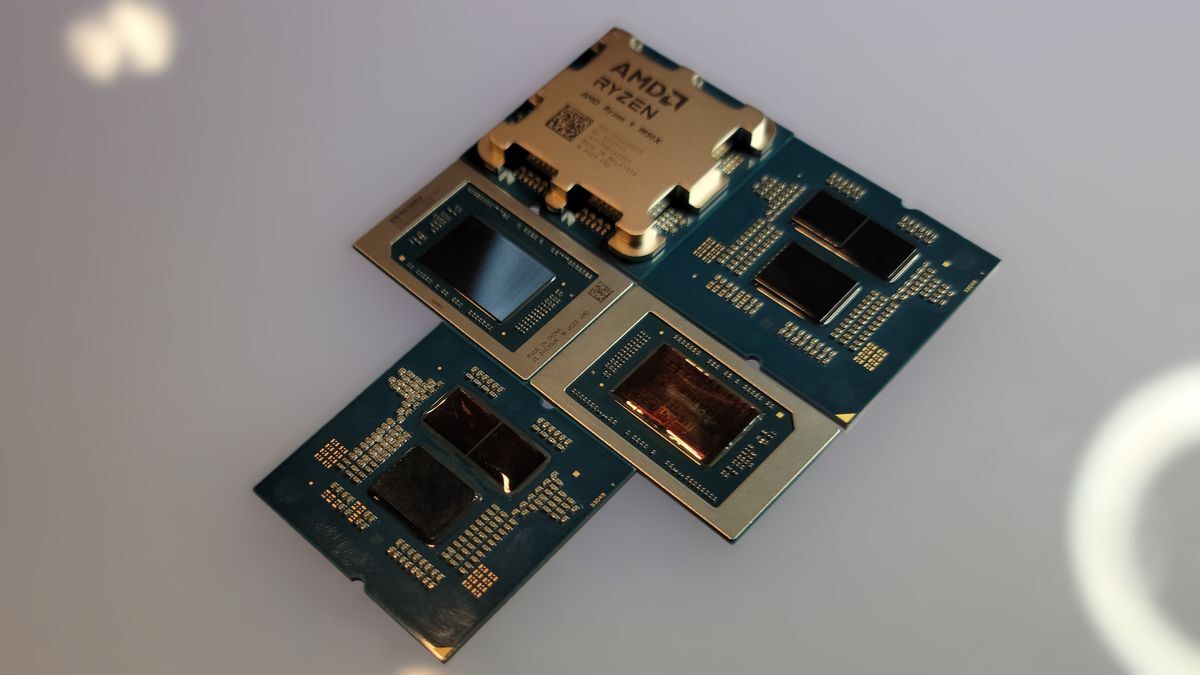- cross-posted to:
- gadgets@lemmit.online
- hardware@lemmit.online
- cross-posted to:
- gadgets@lemmit.online
- hardware@lemmit.online
Intel announces two generations of defective processors and AMD gives up that opportunity to recall their own launch? Must be something very wrong with the batch.
I’d say it’s actually a better market signal rather than indications of huge problems. “See, our competitiors send out defective products; we are holding back to make sure ours ship correctly.”
That’s exactly what enterprise/datacenter customers want to hear: a dedication to stability.
Nah something fishy
Any large scale manufacturer like AMD knows about what % of defective returns they get. They’re using the heat on Intel to help make their numbers look better.
Actually, I think it’s not about defect numbers. This is about delaying until Intel releases the microcode update. They want to be compared after the (potentially) performance tanking update from Intel. Which is hilarious because Intel gave a date after AMD’s initial launch date.
I think it’s also fair as a lot of reviewers aren’t going to bother retesting after Intel releases updates and comparing with AMD after the 9000 series hype has died down, if they had just recently did so for the AMD launch.
… You just contradicted yourself there with the timeline/dates lol.
Wait for intel patch, but release date of cpus is before the expected release date of the microcode patch.You’ve misunderstood. The original release date was set, then Intel announced the microcode update, which was after the original release date, then AMD announced that they’d be delaying the release date, and that new release date is after the microcode update.
Ah, you meant original release date of the amd cpus.
Ye, makes sense.
I personally think they wanted to verify to have no issues in their cpu’s because intel is kinda euh… In a very bad state atm haha. You dont want to be part of that right now xD
no u
Makes sense for two reasons: They show everyone that they don’t push faulty hardware, unlike intel and they also delay the launch until after intel push their microcode update to ‘fix’ their high-end models, which will reduce performance. Ryzen 9000 will look even better in day one performance comparisons.
I’ve been following the Intel story closely. Watched the Gamers Nexus vids. Did I miss it or has it been reported that microcode updates will definitely degrade performance?
It’s not confirmed. Its just pessimism, albeit very well argued and precedented.
Yup, the “fix” seems to be to limit boost to 5.3GHz or so, and there may be other mitigations as well. If it has anything to do with branch prediction or other eager optimizations, we could see further degradations like with the fixes for Spectre and other attacks.
Would be nice for AMD to say what is the specific problem. They chiise to recall, there must be something concrete to say.
They did. Its in the article.
A company representative told Tom’s Hardware that the issue doesn’t require a redesign or re-spin of the Ryzen 9000 silicon and will not result in changes to the already-defined specifications for the various models. AMD will re-screen the chips pulled from the field to identify any with potential issues and then return unaffected models to retail channels. This indicates that not all chips suffer from the issue.
An AMD representative told us that the company “identified an issue with our package product testing process for Ryzen 9000 series processors that could result in a small number of products reaching the market that do not meet our quality standards.” AMD specifically cited the package testing process, implying that the issue resides in the packaging implementation (more on that below).
It says nothing is wrong with the silicon. I appears to be a problem in some units where the silicon die is mated with the materials that hold it (fiberglass PCB or its interconnects).
While annoying, that’s absolutely less of a showstopper than discovering a lithography issue like
big blue(that’s IBM) Intel has discovered (and who knows exactly how long ago they knew about the oxidization issues)Big blue is a nickname for IBM, but i think you’re referring to Intel
Ah whoops, you’re right
To be fair, they’re on a similar trajectory.
It sounds like the issue is specifically with the testing process. Possibly they didn’t test some of the packages properly and accidentally shipped out yield defects like missing memory channels, when they normally would have been scrapped at the factory.







